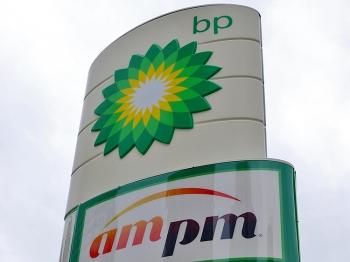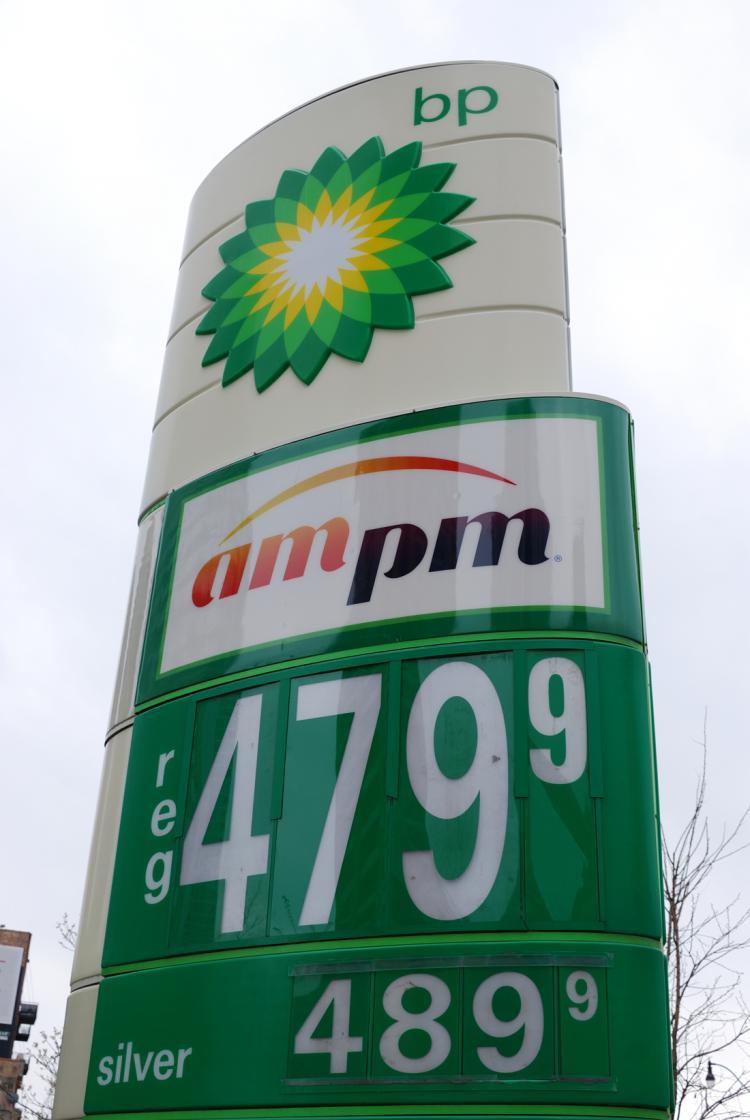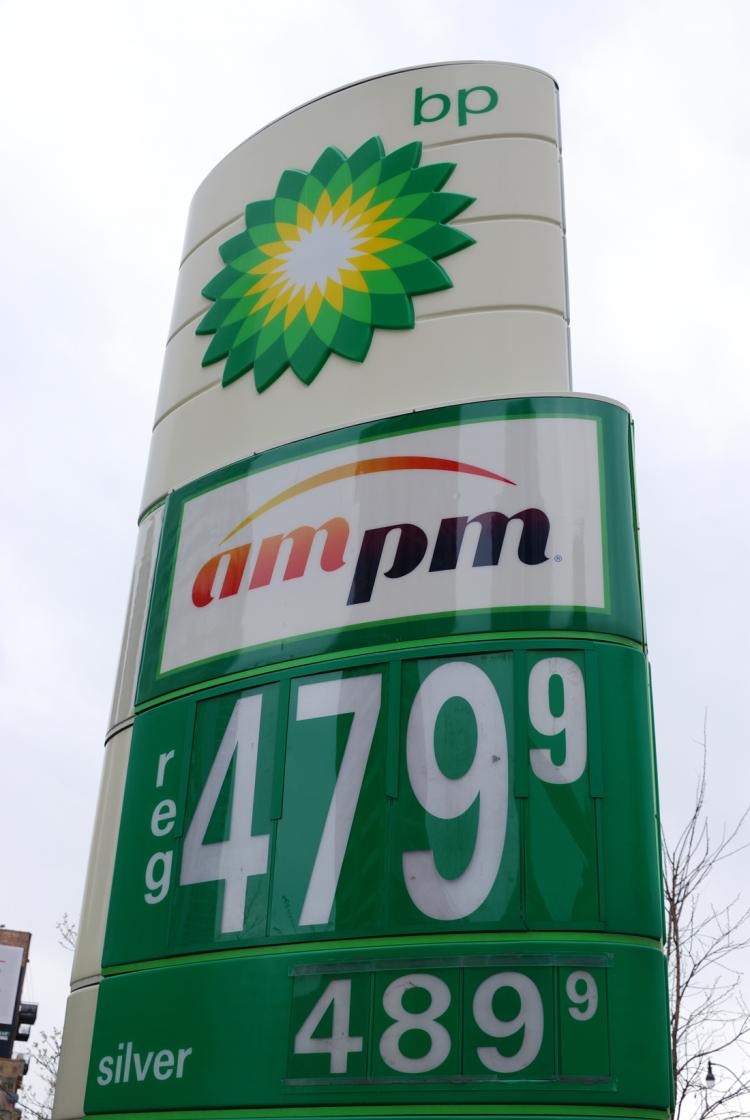High US Gas Prices Put Pressure on Lawmakers to Act
Gas prices topping $4 a gallon in many American cities are increasing pressure on the government to act, even if their actions are unable to bring down costs at the pump.

STILL RAISING: A BP station in downtown Chicago, at the corner of Wabash and Randolf, charges $4.799 a gallon for regular gas on May 3. Mira Oberman/Getty Images
|Updated:
Reporting on the business of food, food tech, and Silicon Alley, I studied the Humanities as an undergraduate, and obtained a Master of Arts in business journalism from Columbia University. I love covering the people, and the passion, that animates innovation in America. Email me at andrea dot hayley at epochtimes.com
Author’s Selected Articles






